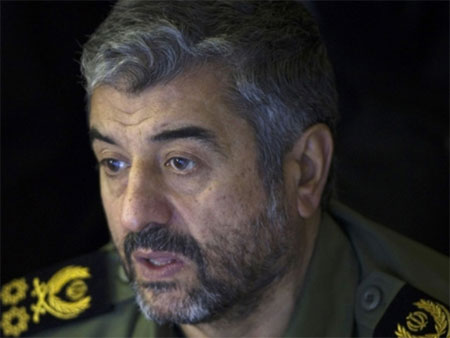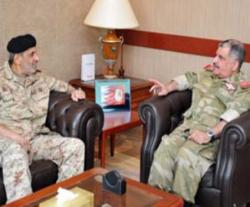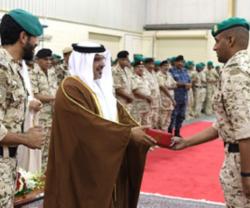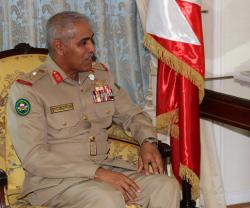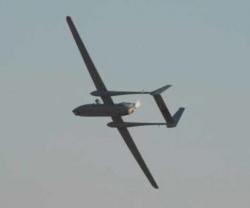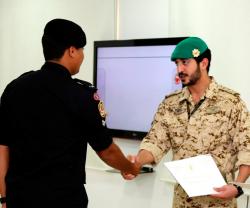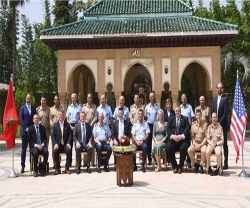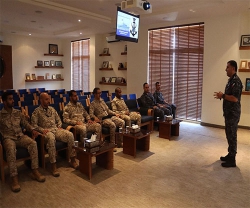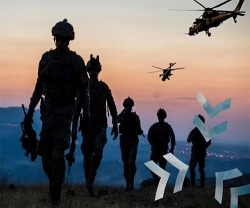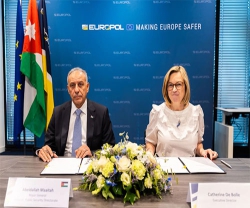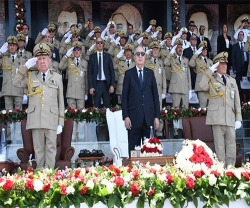The Head of Iran's Revolutionary Guards warned on Sunday of retaliation against the Gulf's strategic Strait of Hormuz, US bases in the Middle East and Israel if his country was to be attacked.
Speaking in a very rare news conference in Tehran, General Mohammad Ali Jafari also said that he believed Iran would abandon the nuclear Non-Proliferation Treaty should it be targeted for military action.
Jafari said the Strait of Hormuz, the narrow channel at the entrance of the Gulf through which a third of the world's traded oil passes, would be a legitimate target for Iran should it be attacked.
“This is a declared policy by Iran that if war occurs in the region and the Islamic republic is involved, it is natural that the Strait of Hormuz as well as the energy market will face difficulties,” he said.
Jafari suggested that US military bases (such as those in Bahrain, Kuwait, the United Arab Emirates and Saudi Arabia), would also be fair game for retaliation by Iranian missiles or proxy forces.
“The US has much vulnerability around Iran, and its bases are within the range of the Guards' missiles. We have other capabilities as well, particularly when it comes to the support of Muslims for the Islamic republic,” he said.
He added that Tehran believed Israel was unsuccessfully trying to push the United States to take part in military action against Iran's nuclear facilities. “I do not think the attack would be carried out without US permission,” he said.
However if Israeli jets or missiles did strike Iran, “nothing of Israel will be left, considering its size,” he warned.
“I do not think any part of Israel will be untouched given our missile capabilities. Thus, our response (warning of annihilatory retaliation) is in itself a deterrent.”
Jafari said that his personal opinion was that, in case of attack, Iran would leave the NPT which is meant to prevent states developing nuclear weapons while permitting atomic energy generation.
“In case of an attack, Iran's obligations will change. My assessment is that Iran may leave the NPT -- but it would not mean a dash towards a nuclear bomb because we have a religious edict from the supreme leader” against atomic weapons, he said.
Meanwhile, a source close to Qassem Suleimani, Head of Iran's Quds Force, has denied media reports that members of Iran’s elite Islamic Revolutionary Guards Corps were in Syria providing non-military assistance to the Syrian army.
The source in Iran's Quds Force told Al Arabiya that the reports were “fictional and absolutely untrue,” adding that Mohammad Ali Jafari, Head of Iran’s Islamic Revolutionary Guards Corps, stressed that the Revolutionary Guard has no presence in Syria and Lebanon and that it does not interfere in the internal affairs of any country.
The U.S.-based Radio Farda’s website and Reuters had cited General Jafari as saying that there are Iranian troops in Syria, but this doesn’t mean that the Islamic republic will “intervene” in confrontation with forces against Syrian President Bashar al-Assad’s regime.
The source close to Suleimani, however, told Al Arabiya that Jafari has denied having said so.
Source: Zawya; Al Arabiya; Photo: Reuters

